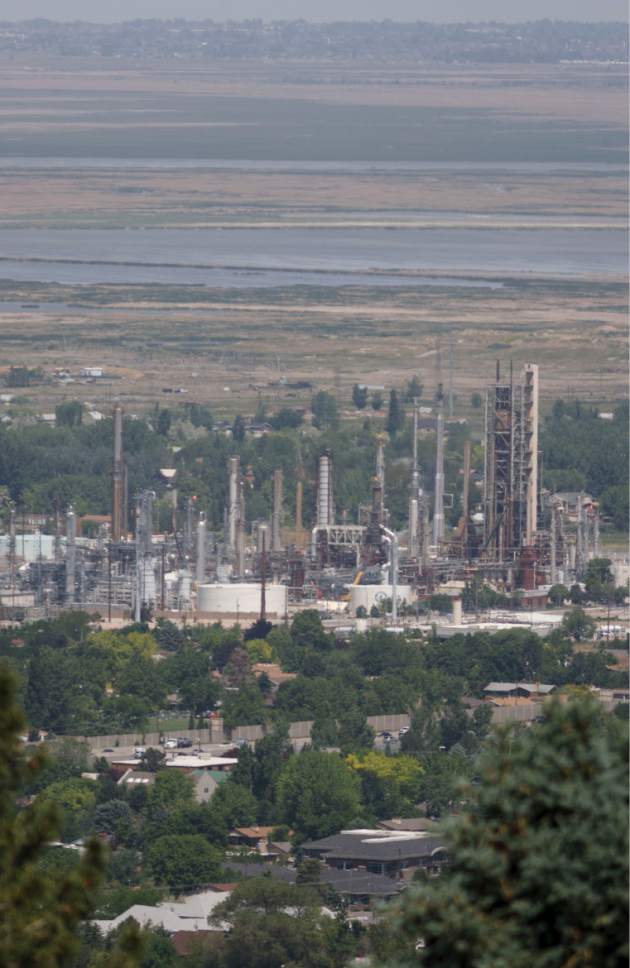This is an archived article that was published on sltrib.com in 2017, and information in the article may be outdated. It is provided only for personal research purposes and may not be reprinted.
A Utah environmental group is disappointed but not necessarily surprised by the state Supreme Court's decision to dismiss a lawsuit that sought to stop expansion of the Holly oil refinery just north of Salt Lake City.
Utah Physicians for a Healthy Environment sued the Utah Department of Environmental Quality (DEQ), challenging the agency's decision to grant a permit allowing Holly Refining to expand its Woods Cross facility.
Last week, Utah's high court threw out the case on procedural grounds.
Writing for the 4-1 majority, Associate Chief Justice Thomas Lee said the lawsuit did not make a specific case against the DEQ and its decision to uphold the Holly permit. Instead, the case argued against the actions of the Division of Air Quality (DAQ), a DEQ subdivision.
Utah law allows those who believe an air-quality permit has been wrongly issued to appeal that approval to DEQ's executive director. If the petitioners do not like the director's decision, they may take their appeal to court.
Justice Christine Durham disagreed with her fellow justices, referencing a dissenting opinion she wrote in a 2016 case. In that opinion, she held that although the lawsuit in question did not address the decisions of the DEQ's executive director, the suit still raised concerns about the DAQ's permitting process that Durham believed the court should have addressed.
"The ruling is a disappointment," said Denni Cawley, executive director of Utah Physicians for a Healthy Environment, "and especially since it was made on the basis of procedure, rather than the merits of the case."
Cawley said her group pursued the lawsuit with the goal of reducing pollution along the Wasatch Front. She said Utah Physicians doesn't have the money to file a new suit and instead will focus on public education and outreach.
Joro Walker, legal counsel for Utah Physicians and an attorney with Western Resource Advocates, said she believed the court was correct in its characterization of the case — the case had focused on the DAQ, not its parent agency's executive director. Walker said the group believed that was the appropriate way to challenge the permit.
"We had, at the time, a relatively new procedural statute, and we implemented it the best we could in the way we understood to be appropriate," she said. "The court said that wasn't the right way to do that. But now we know."
The case had argued, among other things, that the DAQ's decision to issue the air-quality permit for Holly's expansion was flawed because it had estimated future emissions through a method that had not been used by any other permitting agency in the nation. Using that method, Walker said, made the estimates smaller than they would be under the traditional procedure.
These lower estimates came in just under a threshold that would have required a more stringent review, Walker said.
DAQ Director Bryce Bird said his agency used the newer method because the lower figure resulted in a more restrictive permit. Once a facility gains an air-quality permit, it must keep its emissions from exceeding the limits based on those initial estimates.
Bird said the permit issued to Holly complied with all applicable laws. He added that the permit will be subject to review while the state drafts a new plan for addressing small particulate pollution.
Twitter: @EmaPen







